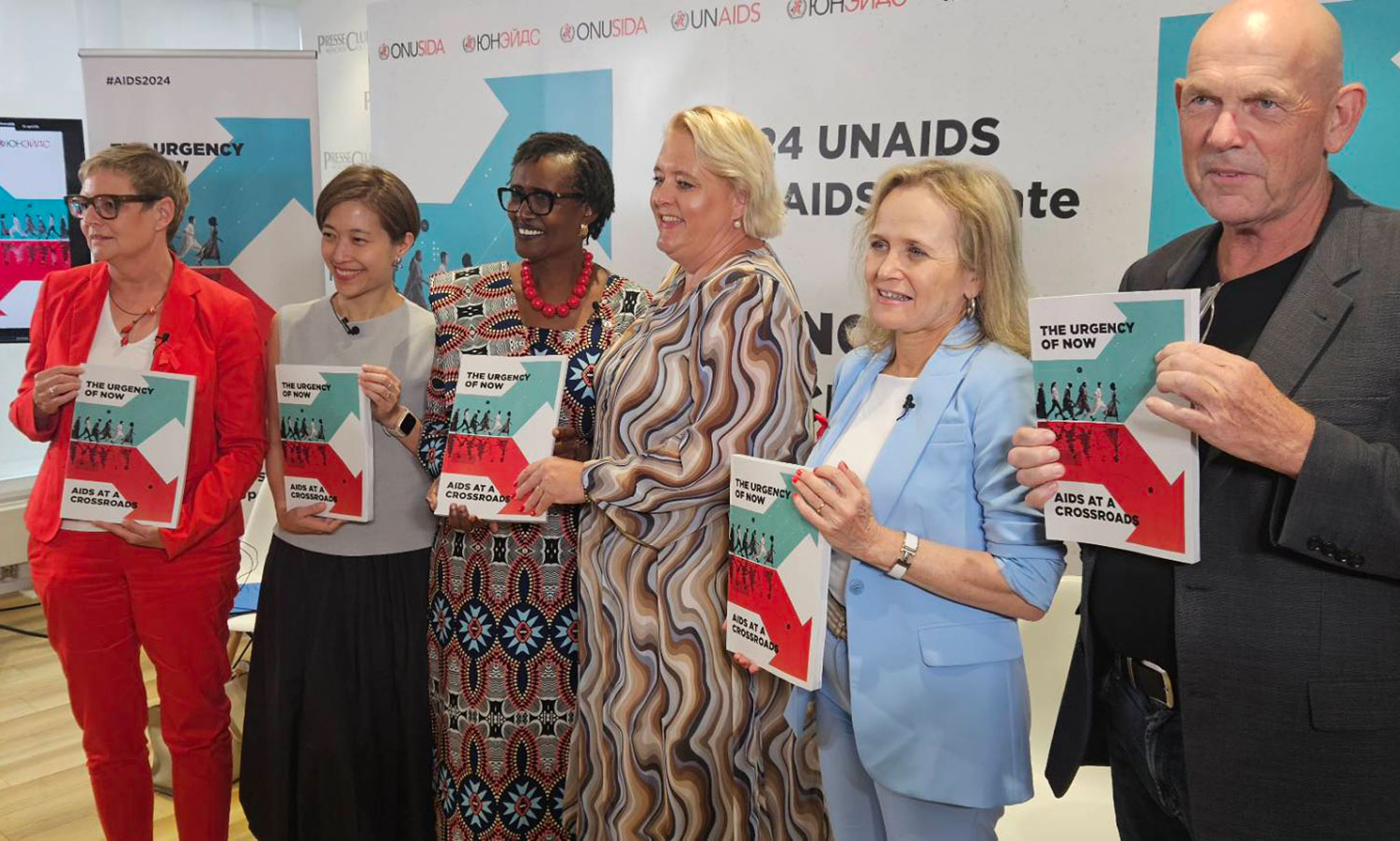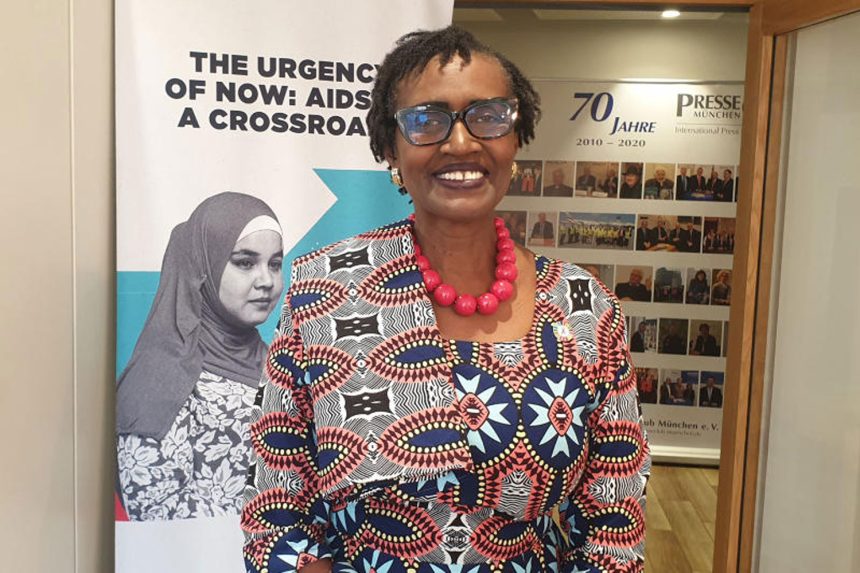(CTN News) – Winnie Byanyima, Executive Director and Under-Secretary-General of the United Nations, complimented Thailand’s accomplishment in building community sustainability in its Aids response and encouraged other nations to borrow from Thailand’s example.
In an exclusive interview with the Bangkok Post at the 25th UNAIDS 2024 conference, which runs till Friday, Ms Byanyima stated that the Thai government has done an excellent job aiding communities working with people living with HIV (PLHIV).
“The Thai government collaborates with communities to provide health care to HIV-positive people. “Thailand does this very well,” she explained.
Furthermore, Thailand has effective laws and policies in place to encourage HIV-positive patients to seek treatment. There is no law in the country that criminalizes homosexuality, for example.
People can receive primary healthcare without paying a fee, and HIV treatment and services are linked to primary care.
“The Thai paradigm [for providing healthcare services and treatment] is an excellent practice. We’ve encouraged other countries to learn from Thailand’s HIV response,” she explained.
Ms Byanyima stated that communities working with persons living with HIV in Thailand contribute to success by providing free services to PLHIV.

To encourage other countries to emulate the Thai model, she stated that UNAIDS has enlisted Thai leaders and doctors who work with communities and individuals living with HIV to share their knowledge with the world.
According to UNAIDS, Thailand is on track to achieve the 95-95-95 Global AIDS Strategy testing and treatment targets by 2025.
The declaration urges member states to ensure that 95% of PLHIV are aware of their HIV status, 95% are getting HIV therapy, and 95% are virally suppressed.
By the end of 2022, approximately 90% of PLHIV were aware of their condition. Ninety percent of individuals identified were on treatment, and an astonishing 97% had their viral load reduced.
Thailand is completely committed to eliminating Aids as a public health hazard as part of the 2030 SDG agenda.
The country is widely known for its “peer-to-peer” method, which began in 1996. This platform enables PLHIVs to support one another.
This program has evolved into a network that includes district, provincial, and national levels, forming the “Comprehensive Care Center” (CCC).
Currently, there are around 219 such CCC networks across the nation.
End stigma and discrimination.
Ms Byanyima went on to state that she is deeply concerned about the condition of stigma and prejudice against PLHIV since these people are afraid to seek prevention and treatment at hospitals and clinics.
So UNAIDS placed HIV services in the hands of communities. This is why the community plays such an important role.
“We still see a huge stigma against persons living with HIV. Everywhere I go, I meet people who have been receiving [HIV] therapy for 20 years but continue to face discrimination and shame from their communities.
“That is why confidentiality and privacy are critical for persons living with HIV. “People living with HIV are being driven away from lifesaving services due to discrimination and stigma,” she stated.
“So we measured this and developed an index to measure HIV stigma and discrimination. We encouraged countries to adopt it to combat stigma, particularly in health safety.”
Ms Byanyima is urging leaders throughout the world to help reduce stigma and discrimination against PLHIV.
Aside from that, she is worried about human rights violations against marginalized individuals, such as men having sex with men (MSM) in certain poor countries.
“These people are being hunted down because they are gay,” she told me.
“We organised people to defend their rights. They must band together to safeguard their rights, particularly in countries where these individuals are targeted. We are now working with communities to help these people challenge themselves and fight for their rights,” she said.
The Pandemic’s End
Ms Byanyima also reviewed a recent UNAIDS assessment that suggests the Aids pandemic could be under control by 2030. The report was released during the 25th UNAIDS 2024 Conference.
The new analysis demonstrates that the world is at a critical juncture if world leaders are to meet their pledge to abolish Aids as a public health hazard by 2030.
The paper “The Urgency of Now: Aids at a Crossroads” contains new data and case studies that show that decisions made this year will determine the fate of millions of lives.
The report’s results found that if leaders adopt the bold initiatives required now to assure adequate and sustainable resourcing while also protecting everyone’s human rights, the number of PLHIV requiring life-long treatment will stabilize at roughly 29 million by 2050.
However, if they continue down the wrong path, the number of people who require lifelong assistance would increase to 46 million.
“World leaders pledged to end the Aids pandemic as a public health threat by 2030, and they can uphold their promise, but only if they ensure that the HIV response has the resources it needs and that the human rights of everyone are protected,” according to Mrs. Byanyima.
“We had 1.3 million new infections last year globally, but leaders have pledged to reduce annual new infections to less than 370,000 by 2025.” We need to go faster, especially in Eastern Europe and Central Asia. “We need to see new infections decrease, but they are now increasing,” she said.
More than 10,000 people are attending UNAIDS 2024, the 25th International Aids Conference, the world’s largest gathering of individuals living with, impacted by, and working on HIV, which is taking place both in person in Munich, Germany, and virtually under the theme of “putting people first”.
Source: Bangkok Post














